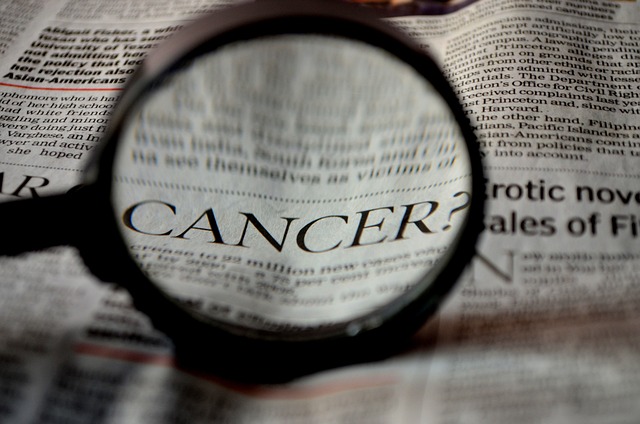Introduction
It’s estimated that this year, nearly 53,000 Americans will be diagnosed with oral or oropharyngeal cancer. Of those, only around 57% will still be alive in five years. Early detection is key to surviving oral cancer, yet the vast majority of cases are not caught until the disease has progressed to a more advanced stage.
The good news is that there are some early warning signs that can help you spot oral cancer before it’s too late. If you notice any of the following changes in your mouth, make an appointment with your dentist or doctor right away:
A sore or irritation that doesn’t go away within two weeks
A lump, thickening, or rough spot on the lips, gums, tongue, or lining of the mouth
A white or red patch on the gums, tongue, lining of the mouth, or tonsil area
Unusual bleeding in the mouth
Numbness in the tongue or other area of the mouth
+Swelling in the jaw that causes teeth to become loose or change position
Remember: If you notice anything out of the ordinary in your mouth, don’t ignore it! The sooner you catch oral cancer, the better your chances are of beating it.
Common Causes of Oral Cancer
There are several common causes of oral cancer, and it is important to be aware of them so that you can spot the early warning signs. Tobacco use is the most common cause of oral cancer, and smokers are six times more likely to develop the disease than nonsmokers. Alcohol abuse is also a major risk factor for oral cancer, and heavy drinkers are three times more likely to develop the disease than nondrinkers. Other risk factors include exposure to sunlight and HPV infection.
Early Warning Signs of Oral Cancer
Most people are aware of the more common signs of cancer, such as a lump or mass in the body, a change in skin color, or persistent fatigue. However, many don’t realize that cancer can also present itself in the mouth. In fact, oral cancer is relatively common, with over 48,000 Americans being diagnosed each year.
The good news is that oral cancer is one of the most treatable forms of cancer if caught early. That’s why it’s important to be aware of the early warning signs so you can spot it before it progresses. Here are some early warning signs of oral cancer to look out for:
-A sore or irritation in the mouth that doesn’t go away
-White or red patches on the gums, tongue, or lining of the mouth
-Bleeding in the mouth
-A lump or mass in the mouth or throat
-Difficulty swallowing
-Persistent hoarseness or sore throat
-Ear pain
Symptoms to Watch Out For
Oral cancer can be difficult to spot in its early stages because it often doesn’t cause any pain or other obvious symptoms. That’s why it’s important to be aware of the potential signs and to see a dentist or doctor if you notice anything out of the ordinary.
The most common symptom of oral cancer is a sore or irritation that doesn’t go away. This can occur anywhere in the mouth, on the tongue, lips, gums, or inside the cheeks. Other warning signs include bleeding from the mouth, trouble swallowing, changes in voice, and ear pain.
If you notice any of these symptoms, don’t delay in seeking medical attention. Early diagnosis is critical for successful treatment of oral cancer.
Risk Factors for Developing Oral Cancer
There are several risk factors for developing oral cancer, including:
Tobacco use: Smoking and chewing tobacco are the leading cause of oral cancer.
Alcohol use: Drinking alcohol excessively can also increase your risk of developing oral cancer.
UV exposure: Oral cancer is also more common in people who have a lot of exposure to UV rays, such as those who work outdoors or spend a lot of time in tanning beds.
Oral hygiene: Poor oral hygiene can lead to an accumulation of bacteria in the mouth, which can increase your risk of developing oral cancer.
Diet: A diet low in fruits and vegetables has been linked to an increased risk of developing oral cancer.
Diagnosis and Treatment Options
If you experience any of the following symptoms, be sure to see your dentist right away for an examination:
-A sore or irritation in your mouth that doesn’t go away
-A lump or thickening in your cheek
-A white or red patch on your gums, tongue, tonsil, or lining of your mouth
-A feeling that something is caught in your throat
-Difficulty swallowing or chewing
-Numbness in your tongue or other area of your mouth
-Swelling in your jaw that causes dentures to fit poorly or become uncomfortable
-Persistent earache
During a routine examination, your dentist will check for any abnormal changes in the appearance of your mouth. If anything suspicious is found, they will likely refer you to an oral surgeon for a biopsy. This involves removing a small piece of tissue from the affected area so it can be examined under a microscope.
Once oral cancer is diagnosed, treatment options will depend on the stage of the disease. Early stage cancer can often be treated with surgery to remove the tumor. More advanced cancer may require radiation therapy and/or chemotherapy.
Prevention Strategies
There are a number of things you can do to help prevent oral cancer, or at least catch it early.
-Avoid tobacco in all forms. This is the most important thing you can do. If you use tobacco products, quit. If you don’t use them, don’t start.
-Limit your alcohol consumption. While alcohol doesn’t cause oral cancer, it can increase your risk if you already use tobacco products.
-Eat a healthy diet and get enough vitamins and minerals, especially vitamin A and C. These nutrients help keep your mucous membranes healthy, which can prevent cancers from developing in the first place.
-Protect your lips from the sun with a lip balm that contains SPF 15 or higher.
-See your dentist regularly for checkups and cleanings. Your dentist can spot early signs of oral cancer that you might not notice yourself.
Conclusion
Oral cancer is serious and can be life-threatening if left untreated. It’s important to take the early warning signs seriously and seek medical advice as soon as possible. With regular visits to your dentist, you should be able to spot any symptoms before they become too advanced. Remember, the sooner you catch it, the better your chances of successful treatment are!









